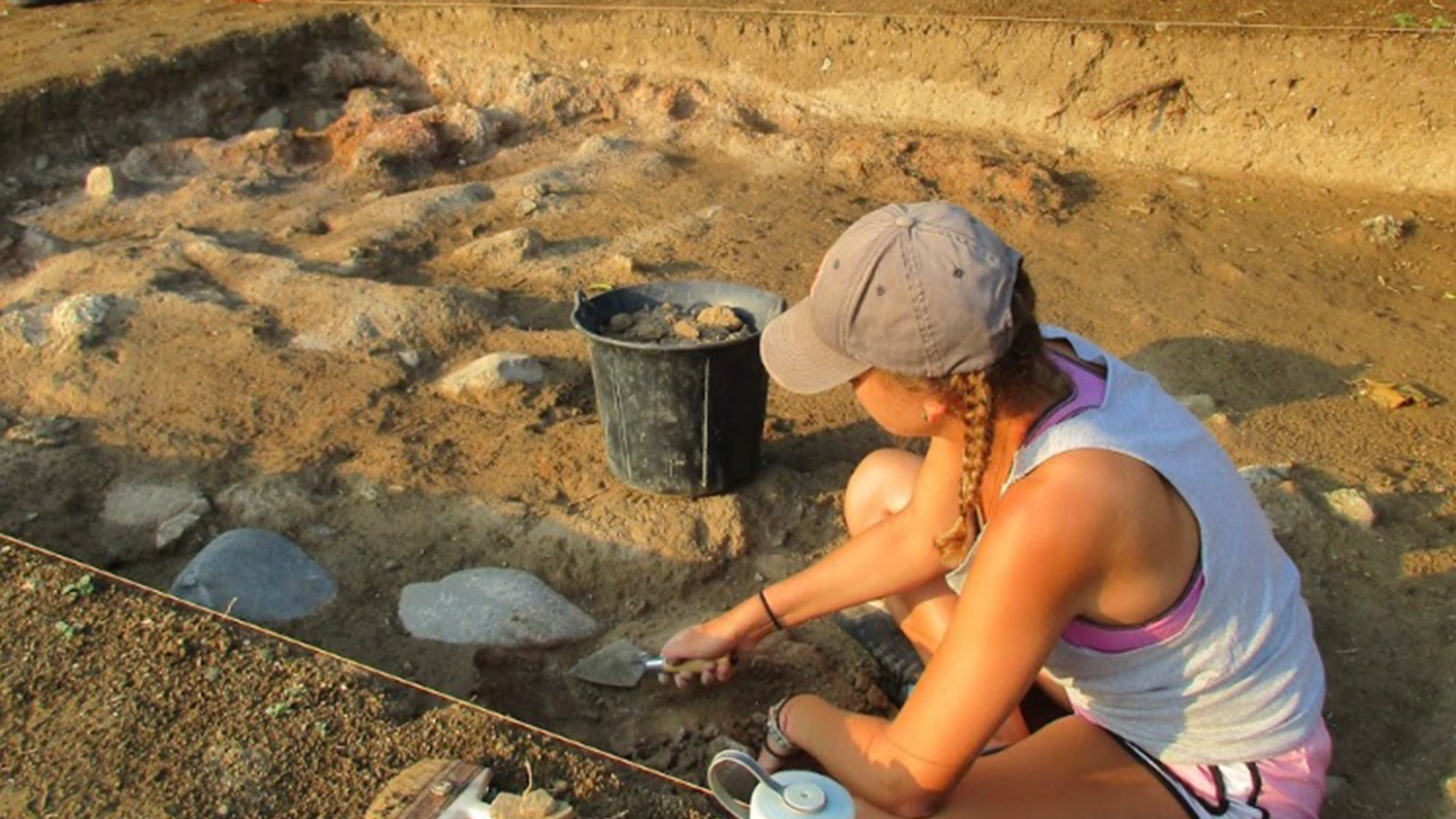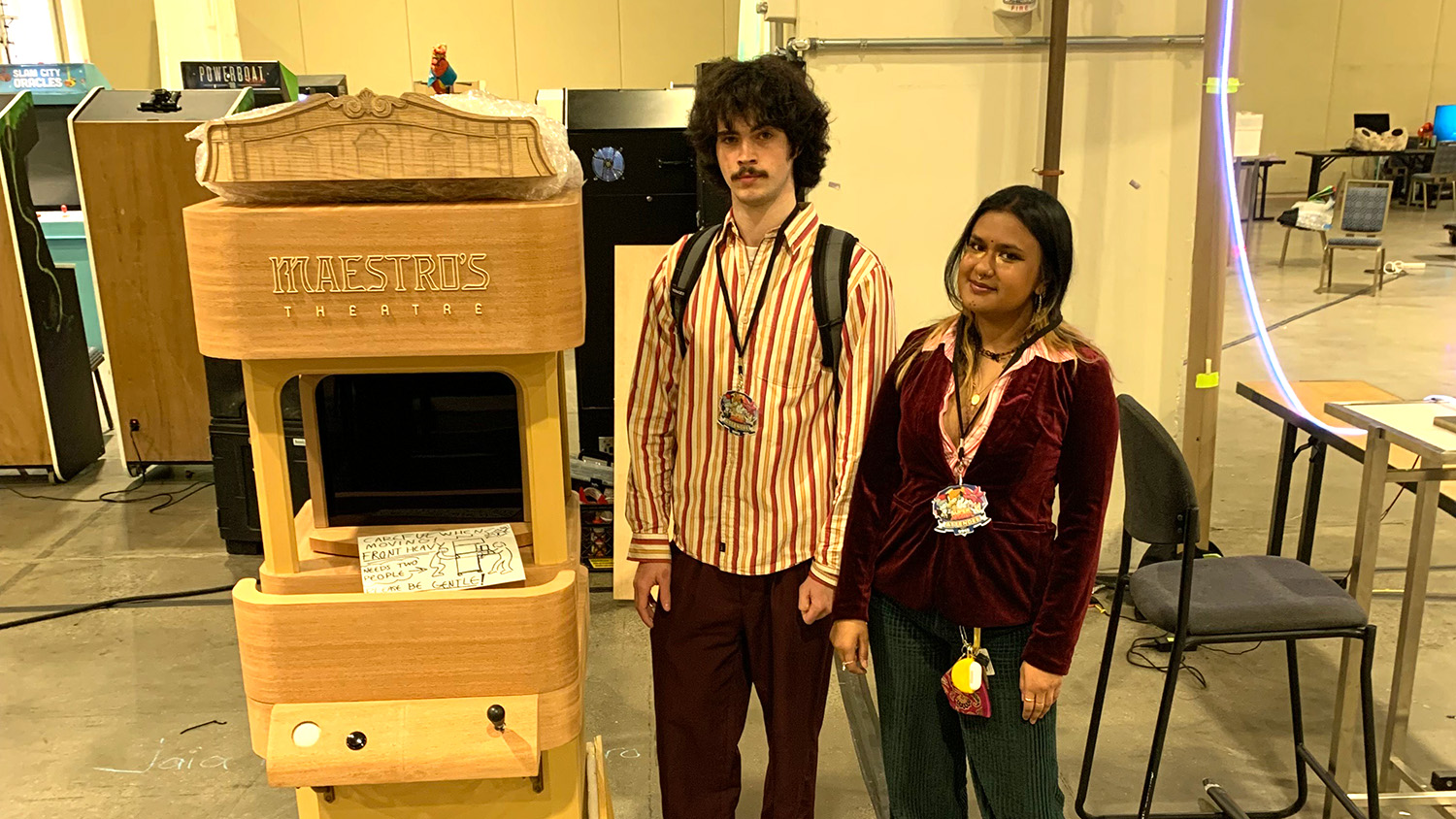| By Marco Valencia |
The Office of Undergraduate Research was given the opportunity to sit down with senior Erin Gniewek to discuss some of her experiences with undergraduate research and how that research established a new future interest. Gniewek is double majoring in animal science and anthropology and has been involved with research inside Dr. S. Tom Parker’s Archeology Lab.
How did you get into undergraduate research?
I started in the summer of 2019 when I went on a study abroad trip to Cyprus, wanting to get more experience for my anthropology major because I previously was not exposed to any research regarding the major. The trip was with Dr. Grossman and Dr. Paulette, and they were doing an archeology project in Cyprus, which sparked my interest because I’ve never done anything like that and wanted to see if this is something I wanted to pursue further. The opportunity was there so I jumped on it and took the trip to Cyprus. Turns out, I absolutely loved the trip and doing archeological digs, and when the trip was over, I wanted to continue when I got back to NC State. I was directed to reach out to Dr. Parker about getting involved so I emailed him, and he immediately responded asking for an interview and then told me I could begin immediately. Primarily, one could say my email kickstarted my research with Dr. Parker, but the study abroad trip to Cyprus piqued my interest in anthropological research as a whole.
What do you do for research, and what does that entail?
I help Dr. Parker with his research, aiding him to reach his deadlines. Dr. Parker and I work on a couple of projects, the first one is the Petra North Ridge Project and the second one is the Roman Aqaba Project, with both being based out of the country Jordan. With these projects I do a lot of administrative work, such as editing chapters in his final report, organizing and analyzing pottery shards, drawing matrices, and ultimately finalizing submissions for publication. Publication for his book should be within this year if everything goes planned, so be on the lookout! As I approach my final semester, I’m hoping that I can start working with him on an independent study, because I would love to continue research with his guidance.
How have the experiences with Dr. Parker in the field of archeology molded and shaped your plans for your future?
Going off of my animal science major, my future goal was to eventually go into the field of zoo archeology, but Dr. Parker has grown my interest in the pottery side of archeology as well. He deals heavily with pottery and analyzing it in terms of how it applies to sites in ancient times, which has definitely increased my understanding and knowledge of the subject. In future terms, working with animal bones as well as pottery, seems to be the path I am taking now.
How important is having a mentor to help guide you in the process of undergraduate research?
When you build a relationship with a professor, it can be intimidating at times because they are so educated and know so much about the subject at hand, but once you build that relationship with the professor, they will help you in so many ways. They not only help with the research you are working on but also with your future plans. Dr. Parker has asked me about graduate school, getting some more experience, and wanting to help get me into the best program possible, further fostering that relationship with me. They want to see you succeed not just in undergraduate research but beyond and will help you achieve that in any way they can.
What are some tips you would give to freshman and new students who are looking at getting involved in research?
When I was a freshman, I wanted to do research but was very overwhelmed on where to start. It is absolutely doable to partake in research as a freshman, but for me personally, I made the decision that I was going to wait a little and see where my studies took me and then come back to the topic of research. Thus my advice for freshmen is be patient and don’t think you have to rush right into research. Do your homework on what you want out of the research and when you feel like you have found the right opportunity, send an email. If they say no, they say no, but oftentimes they will point you in the right direction for an individual to say yes and get you where you want to be.
My last piece of advice to all my fellow researchers’ is don’t be afraid to try new things. I wasn’t that interested in studying pottery until I was immersed in the study, and it gave me a newfound interest that has changed my future path, so you never know what you might find yourself doing!
- Categories:



